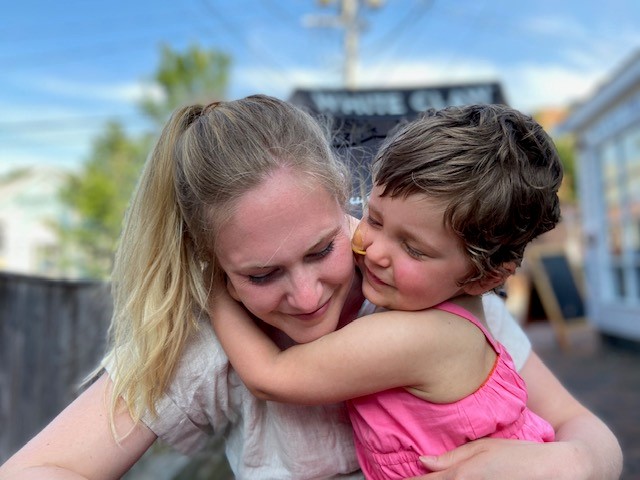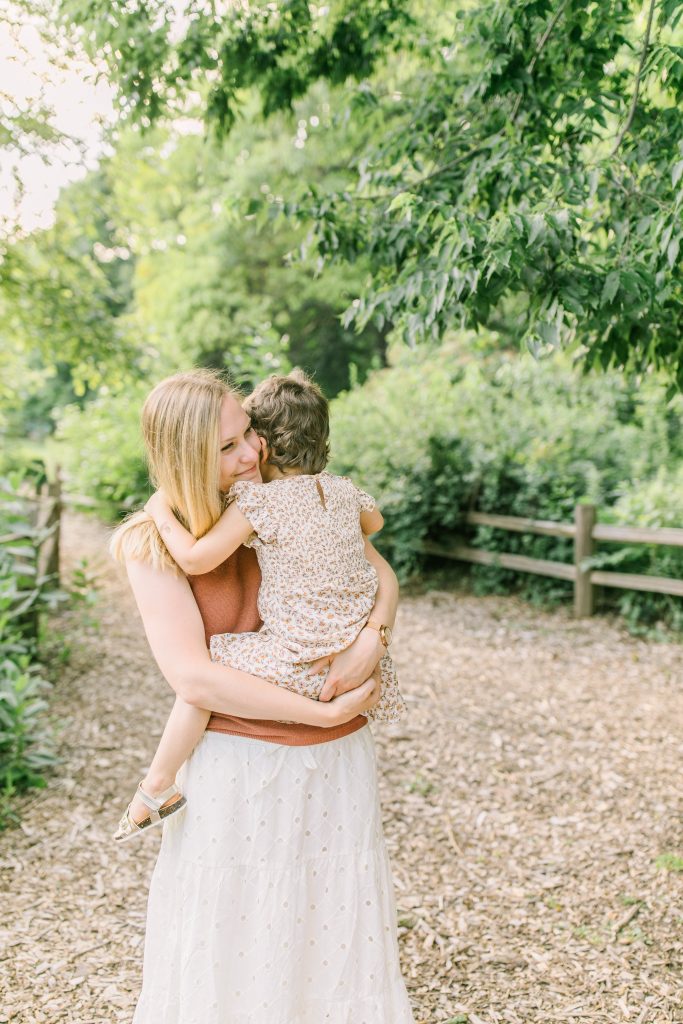
Welcome to our new Member Spotlight series! Learn how fellow members are overcoming challenges, advancing equity, and increasing impact.
This month, in honor of Pediatric Cancer Awareness Month, we’re highlighting member Autumn Gentry from the Midwest Athletes Against Childhood Cancer (MACC) Fund.

The MACC Fund provides funding for childhood cancer research at Medical College of Wisconsin, Children’s Wisconsin, UW Carbone Cancer Center and, most recently, Marshfield Clinic. They have committed to providing $35 million over the next five years to a research acceleration initiative at Children’s Wisconsin/Medical College of Wisconsin and UW Carbone Cancer Center.
Autumn Gentry, Childhood Cancer Advocate for the MACC Fund, shares more about the importance of the work they do, how other WCC members can support their mission, and her powerful connection to this work.
Tell us about your role at MACC Fund.
Gentry: Earlier this year, the MACC Fund created a position for me to develop an advocacy arm for the organization. They have historically worked exclusively with fundraising for childhood cancer research so there is no precedent for this in our organization. To get this off the ground, I’ve been working to make the right connections, collaborate and learn from other non-profits, listen to families affected by pediatric cancer, and develop a vision for what advocacy work can look like for the MACC Fund.

What initiatives are you currently working on?
Gentry: Currently I’m working to develop three areas:
- State level advocacy by collaborating with Coalition Against Childhood Cancer (CAC2) to develop supportive materials for DHS and the Wisconsin Cancer Collaborative. I am hoping to one day use this to influence legislation for state funding of pediatric cancer research.
- Awareness building through storytelling. I am interviewing families throughout the state impacted by childhood cancer including families of children in treatment, survivors, and those we’ve lost in the fight. All their stories are necessary to paint the picture of why supporting childhood cancer research is so important. I am writing their stories and sharing them through MACC Fund’s social media outlets as well as highlighting the families at fundraising events. Additionally, I am sharing my own experience through speaking engagements.
- Creating family support groups. We are partnering with the Leukemia and Lymphoma Society to start a support group for families of children receiving cancer treatment at the MACC Fund Center in Children’s Wisconsin. We hope to use this to provide education, community resources and connection.
How can our other members support your work?
Gentry:
- Educating themselves about the current state of pediatric cancer in Wisconsin. Tuning into the upcoming WCC September webinar on pediatric cancer is a great place to start!
- Help raise awareness and support community organizations that support pediatric cancer research and families affected by childhood cancer.
- Encourage their cancer organization to include children in the conversation about cancer.
- Get in contact with me if you would like to support my efforts in any way at all!

At the end of the day, what inspires you?
Gentry: In 2019, my daughter, Isla, was diagnosed with Acute Myeloid Leukemia at two and half years old. She relapsed during treatment but could never make it to transplant due to infections and refractory disease. She participated in a phase 1 clinical trial once we ran out of options. She died in August of 2020, shortly before her 4th birthday. My daughter died because the standard treatment being used for her was the same one developed decades ago. When that treatment failed, there was no plan B.
Two years after my daughter died, having gone through the pain and trauma I experienced, I continued to receive weekly reports of children in our community either relapsing or dying. I knew I needed to use my experience and voice to fight for the kids in our state. I sought out the CEO of the MACC Fund and, after many conversations about what we imagined for the future of the MACC Fund, she created a position for me to develop this new area for the organization.
What are you proudest of in your work?
Gentry: This is truly an uphill battle to break new ground in our state, and it’s hard to not feel alone in the work. I put one foot in front of the other each day and ask myself, “What can I do next today?” So, I guess you could say, I’m the proudest of my perseverance.
What are some of your greatest challenges?
Gentry: The overall lack of awareness about pediatric cancer. There is a misconception that it’s rare and therefore not a problem. It’s not rare. And it’s a huge problem, especially in Wisconsin.
Working part time from home while juggling three young children. Developing a program with limited time and resources is quite a challenge, but I’m happy to take it on and honored to be trusted with this task.
What has been the progress you’ve seen so far?
Gentry: Sharing the stories of children in our community has absolutely started raising awareness for people who simply did not know childhood cancer was a thing, let alone a major problem in our state. We are beginning to see its impact through the generosity of first-time donors.
Also, interviewing families has been an incredibly beautiful and healing experience for both me and those I interview. A parent’s journey through childhood cancer is incredibly isolating. Having an opportunity to share their stories- to feel seen- does a great deal for them. This is one of the reasons I wanted to partner with the Leukemia and Lymphoma Society in developing a parent support group. Families need the opportunity to share within the safety of an understanding community.
How has being involved with WCC helped you in your work?
Gentry: This spring, members and staff in the collaborative have generously helped get me on my feet by connecting me with individuals who could lend their expertise. This helped so much as I worked to develop a vision for my work.
As a newer member what are you looking to gain from your membership in WCC?
Gentry: I was an elementary school teacher and then an at home parent. I have no problem admitting that I am absolutely learning as I go- trying things, failing, listening, and collaborating. But I truly believe great things can be done with the right mixture of passion, collaboration, humility, and luck. I’m hoping my membership in WCC will continue to offer opportunities to connect with those who have gone before me in advocacy work.
I also hope to raise awareness among member organizations that kids get cancer too, and they need to be a part of the conversation.
Anything else you feel is important for you to share?
Gentry: Childhood cancers are very different than adult cancers and require their own research- not a trickle down of outdated therapies designed for very different bodies and very different biology.
